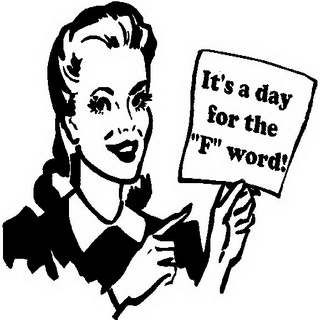Recent Articles
-
 The ladyboy forum is for sale
The ladyboy forum is for saleadmin - Mar 05 2025 12:51 AM
-
 Debunking Common Misconceptions About Ladyboys
Debunking Common Misconceptions About Ladyboysadmin - Apr 28 2023 09:13 PM
-
 How to tell if your ladyboy date is an Escort
How to tell if your ladyboy date is an Escortadmin - Apr 28 2023 09:01 PM
-
 Thai Ladyboys and Buddhism: a complex relationship
Thai Ladyboys and Buddhism: a complex relationshipadmin - Apr 28 2023 09:13 PM
-
 The Ladyboy Entrepreneurs
The Ladyboy Entrepreneursadmin - Apr 28 2023 09:13 PM
Recent Comments
-
 Why do Ladyboys have an obs...
Why do Ladyboys have an obs...michel2023 - May 15 2025 01:57 PM
-
 Why do Ladyboys have an obs...
Why do Ladyboys have an obs...Raipuragency - Oct 10 2024 02:15 PM
-
 Why do Ladyboys have an obs...
Why do Ladyboys have an obs...riyamehra - Sep 28 2024 06:10 PM
-
 Why do Ladyboys have an obs...
Why do Ladyboys have an obs...Laylyt - Sep 26 2024 05:13 PM
-
 Why do Ladyboys have an obs...
Why do Ladyboys have an obs...soniyathakur - Sep 18 2024 03:57 PM
-
 Why do Ladyboys have an obs...
Why do Ladyboys have an obs...GoaEscortsSupriya - Aug 23 2024 02:55 AM
Featured Events
The 'F' Word
Mar 28 2014 10:53 PM |
Moo Yung
in Newbie Advice
Langauge Thailand Culture The word Farang (pronounced with a drilled ‘r’ and often mispronounced as ‘falang’), is the widely used Thai term for a white or Caucasian person, or someone of Europe ancestory (though African-Americans will sometimes be referred to as 'farang dam’, simply meaning ‘black farang’). You’ll hear it used in all parts of Thailand, from the taxi driver who greets you at the airport, to the college students at the mall, you’ll even hear it spoken by the locals you’ll befriend and socialize with. For any white foreigner heading to Thailand there is no escaping the word ‘farang’.
The word Farang (pronounced with a drilled ‘r’ and often mispronounced as ‘falang’), is the widely used Thai term for a white or Caucasian person, or someone of Europe ancestory (though African-Americans will sometimes be referred to as 'farang dam’, simply meaning ‘black farang’). You’ll hear it used in all parts of Thailand, from the taxi driver who greets you at the airport, to the college students at the mall, you’ll even hear it spoken by the locals you’ll befriend and socialize with. For any white foreigner heading to Thailand there is no escaping the word ‘farang’.From where does the word originate?
The origin of the word ‘farang’ is widely disputed. Some will tell you it simply derives from the word ‘Farang-set’, which means ‘French’ in Thai, with the French having a very strong presence in the region from the 16th Century. Others will tell you that it comes from the Arabic word ‘farangi’, which means white skinned people. There are many similar theories with a number of countries having a similar sounding word for white foreigner or westerner.
It’s likely that there is some truth to all these theories, with the general academic belief being that the word for ‘farang’ and other similar words come from the Persian word ‘farang’ or ‘farangi’ meaning ‘Frank European’. This in turn came from the Old French word ‘franc’ which was their name for the powerful Frank Western Germanic tribe which ruled much of Western Europe during the early part of the Middle Ages, and from which France derived its name.

A fruitier explanation
To complicate matters a little, ‘farang’ is also the Thai word for guava fruit (with no difference in the pronunciation), which was first introduced by Portuguese traders around the turn of the 18th Century. In the Isaan / Laotian regional language a ‘farang’ fruit is called a ‘mak sida’, with ‘mak’ meaning fruit, while a ‘farang’ foreigner is often called a ‘bak sida’, with ‘bak’ meaning ‘male’. Though as you can imagine, there is as much (if not more) controversy surrounding this word.
You’ll also see the word ‘farang’ used to describe some food imported from the West, such as ‘man farang’ which is a type of potato, and ‘mak farang’ which means chewing gum.

Is the word ‘farang’ racist?
What most ‘farang’ really want to know is whether the term is racist. I know several expats and regular travelers to Thailand who take offence to being referred to as a ‘farang’, and some who find it amusing, playful, or even charming, but whether or not the word is an insult or racist depends on the context in which it is spoken.
‘Farang’ is in essence a very common and neutral word and one which is used so widely (especially in big cities and touristic areas), that it even appears in many Thai language dictionaries. If you overhear shop workers talking about you and referring to you as a farang you shouldn't instantly feel offend, in most cases it is done so with all innocence and in some cases they may even be complimenting you or referring to you in a very positive manner.
Things get a little more tricky when someone directly calls you a ‘farang’, i.e. if someone asked you ‘where are you going, farang?’ that could be taken with some offence, as in the same way asking someone in English ‘where are you going, foreigner?’ could be taken as an insult, but in general, being referred to as a ‘farang’ by someone such as a taxi driver or street vendor is not likely to be meant as an insult.
On the other hand, one may feel offended being call ‘farang’ by the staff or a nice restaurant or hotel. It could be seen as a lack of respect in an establishment which should offer more sensitivity and caution towards a word that obviously offends some people. The same goes for work colleagues and friends, while it is most likely not be meant as an insult, being referred to as a ‘farang’ by such people may seem impersonal.

The Thai view
Ask most Thais and they will tell you the word isn't racist or meant as an insult. And they are mostly right. ‘Farang’ is a word most Thais have grown up hearing, being used to describe white foreigners in a matter of fact way. There is no evidence of oppression, hatred, or racism to be found behind the history of the word, no matter which theory of its origin you choose to believe.
Some Thai people who feel uncomfortable using the word ‘farang’ may try to use words such as ‘kon dtahng bpra-tayt’, or ‘chaw tang chati’, which both mean a person from another country, and both of which are clearly quite a mouthful – and so the word ‘farang’ remains the short, simple alternative that the majority of Thai people use.
When a Thai refers to a foreigner as "farang khi nok" then it’s probably time to start taking offence. 'Farang khi nok' is actually a variety of guava fruit, but it also translates to mean ‘bird shit Foreigner’.

A need to be accepted
Many of those who take offence when being referred to as a ‘farang’ are expats or those who spend a lot of time visiting Thailand. The offence they take from the word may be somewhat down to a bad experience or the frustration of not being accepted as a resident rather and still being called a foreigner. However, the truth is that one can never change his/her heritage or ethnicity, only embrace it, fight it, or accept that it’s only an issue if you make it one and being a ‘farang’ in Thailand can also be a positive and enviable thing.
Many foreigners in Thailand not only accept the word but embrace it, with foreign run communities and businesses using the word as a means of recognition, connection and identity, such as Der Farang, a popular German language newspaper for expats, Farang Properties Services, and a number of shops and bars run by and for expats living in Thailand, using the word ‘farang’ in their business name and marketing copy.
IMHO..
For my 5 baht’s worth, Farang isn't a racist word. It isn't even a unique word to Thailand. In Malaysia and Cambodia white foreigners are referred to as Barang, in Vietnam it’s Pha-rang, in Turkey, ‘ifangi’, ‘firinji’ in Arabic, and even Greek people refer to Westerners as ‘frangos’, and in none of these countries is it primarily used as a racist or insulting term.
However, as with many words it can be used in a racist way if so intend, and in some cases a foreigner will be called a ‘farang’ in a negative way. Being offended in such a way once can cause some to develop a negative reaction towards the ‘f’ word and often this is where talk of it being a racist term often develops. My advice is, despite any past experience with the word, you should always be aware of the context in which it is spoken, assuming no offence unless it is clearly given.
Written by: Moo Yung
- drhoneytongue, Teppis and Elpaso like this












1 Comments
In Japan, you are gai-jin (or politely gai-koku-jin - outside country person); while in China you are a gwei-loh - ghost man aka white-skinned person), in Singapore and Malaysia you are ang mo, and the list goes on. It's just a description, and the context and how it is said tells you if it is positive or negative. A softly-spoken bar girl's farang and a construction worker's harsh farang cannot be mistaken!